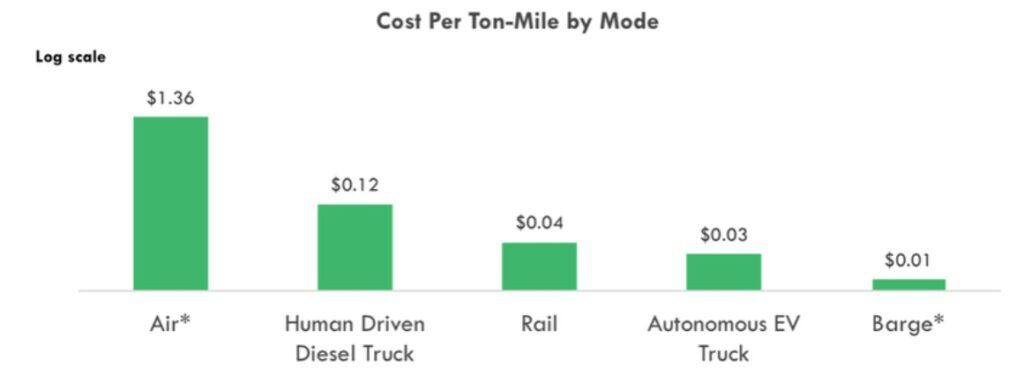Learn top 7 KPIs for freight managers that should track weekly, backed by real-world benchmarks, glossary references, and TMS tools to drive performance.
In fast-moving logistics, freight managers can no longer afford to “set it and forget it.” Freight managers need to closely track performance data on a weekly basis to ensure daily operations are running smoothly, costs remain under management, and customers stay satisfied. Not reviewing the correct Key Performance Indicators (KPIs) can lead freight managers to overlook hidden costs in their operations, poorly-performing lanes, and other operational bottlenecks that negatively impact profit margin.
Below we outline the 7 KPIs freight managers should examine on a weekly basis to stay ahead, and how modern solutions such as a Transportation Management System (TMS) makes this much easier.
Below we outline the 7 KPIs for freight managers that should examine on a weekly basis to stay ahead. How modern solutions such as a Transportation Management System (TMS) makes this much easier!
Top 7 KPIs For Freight Managers
1. On-Time Pickup & Delivery Rate
Late pickups and deliveries not only frustrate customers. They may impose accessorial fees, affect your carrier scorecards, and harm long-standing relationships. Monitoring on-time performance every week offers an opportunity to identify trends. Before they become persistent problems.
Typically if your on-time percentage falls below the target, the reasons are inefficient dispatching, deadhead miles, or avoidable detention at shippers and receivers. Today’s TMS solutions can trigger automated alerts when shipments fall behind schedule, giving you the chance to drop what you’re doing and right any wrongs.
Also read: Samsara’s tips on optimizing fleet performance
2. Cost Per Mile (Including Deadhead Miles)
All miles matter, especially those you don’t get paid for. Knowing your true cost per mile, including fuel, driver pay, tolls, and empty deadhead miles, shows how well you are operating.
We have tracked our company costs weekly so we can see where we may be overspending. Maybe we have empty miles in a lane because we are not planning backhauls. Cutting deadhead miles with better planning could boost profits by a large margin.
Read more: What Are Deadhead Miles and Why Do They Matter?

3. Freight Bill Accuracy & Disputes KPIs for Freight Managers
Bad freight bills can slow payments, hurt relationships and create hours of dispute resolution. Tracking accuracy each week allows you to find out if the problem lies in data entry, accessorial charges or carrier communications.
If you have more than 2-3% of your weekly invoices that are not accurate, then you need to take a look at your processes. A transportation management system (TMS) can automate the rating function, validate charges, and save your Proof of Delivery (POD) Documents to reduce your disputes drastically.
Also read: Automate Your Proof-of-Delivery Filing (POD)
4. Average Dwell Time (Detention)
Excessive detention time along the supply chain with shippers and receivers costs money. It also impacts the drivers’ attitudes. Freight managers can potentially identify problem facilities and subsequently negotiate better terms on dwell time by analyzing the average dwell time by stop each week.
Prolonged detention time can also boost driver satisfaction and would help reduce the driver turnover rate (another KPI we’ll get to).
5. Trailer Utilization Rate
Trailers are one of your biggest expenses.
Low utilization rates easily indicate inefficiency, whether that be empty trailers or poorly planned backhauls (in addition to just being poor at maintenance!).
Tracking utilization rates and averages weekly can give managers insights and clarity. Whether those assets are being used effectively. It can also be helpful to track deadhead miles for an accurate understanding of gross margins per load.
Also check: DAT’s equipment utilization insights
6. Driver Turnover & Satisfaction KPIs for Freight Managers
Driver turnover isn’t just a recruiting problem. It will add costs related to training and onboarding and costs from lost productivity. Weekly reporting can show early warning signs of disengagement, such as reducing driver mileage or increasing unpaid wait times.
With TMS data, companies can look at the miles driven, pay consistency, and volume of problem loads each individual driver has. They then can take proactive steps, like fixing lanes or paying detention time, to help retain their top drivers.
7. Gross Margin Per Load
Lastly, every freight manager must know exactly how much profit every load is generating. Tracking gross margin per load weekly allows decision makers to understand what customers, lanes, or type of equipment to focus on, and what is negatively impacting profitability.
A strong TMS can build real-time margin reports that factor in all line-haul costs, fuel, and accessorial costs automatically to facilitate fast and accurate decisions based on data, rate adjustments or dropping unprofitable lanes.
Benchmark Ranges: What “Good” Typically Looks Like
Every freight network operates differently, mode, region, seasonality, customer mix, and equipment type all influence performance. But freight managers still need a directional sense of what “healthy” weekly KPIs usually look like in the industry.
Below are generalized benchmark ranges consistently referenced across top-performing carriers, brokers, and shipper networks.
| KPI | Typical Healthy Weekly Range | Context / Notes |
| On-Time Pickup & Delivery | High 90% range | Best performers maintain consistent reliability across lanes, except during peak-season volatility. |
| Cost Per Mile | Varies widely by region and mode | Influenced by fuel prices, equipment type, and backhaul availability; tracked as a trend more than a fixed number. |
| Freight Bill Accuracy | Mid-to-high 90% range | Errors often stem from accessorials, mismatched rates, or manual entry — automation significantly improves this KPI. |
| Average Dwell Time | Under 1 hour per stop (where possible) | Retail, port, and heavy DC networks may see higher times due to congestion or appointment rules. |
| Trailer Utilization | 80%+ | High performers optimize cube and weight regularly, reducing empty repositioning. |
| Driver Turnover (Annualized) | Highly variable | Depends on region, pay structure, and freight type; weekly indicators (late loads, reduced miles) matter more than the exact rate. |
| Gross Margin Per Load | Healthy and stable margins depending on lane mix | The goal is consistent margin health, not hitting a universal number since markets differ widely. |
Instead of chasing a “perfect number,” freight managers should use these ranges to spot trends, deviations, and recurring patterns. Weekly KPI tracking becomes powerful when focused on direction, consistency, and exceptions, not rigid targets.

Why KPIs For Freight Managers Are Important To Track Weekly Matters
Some of these KPIs, like cost per mile or on-time delivery, may vary daily related to fuel prices, lane demands, and seasonal volume. Tracking KPIs weekly gives you enough data to identify trends without getting distracted by daily noise.
FTM TMS provides freight managers with dashboards and automated reports encompassing all of these KPIs (plus others!) to keep you organized and save you time, while ensuring nothing gets overlooked.
How FTM Facilitates KPIs for Freight Managers
- Custom Dashboards: Create weekly snapshots of each KPI with visual trends.
- Scheduled Reports: Auto-deliver key metrics to your team’s inbox.
- Alerts & Notifications: Automate breach notifications for thresholds you set.
- Seamless Data Integration: ELD, telematics, and Load Board inputs feed your KPI reporting pipeline.
Learn more: What is a TMS? Key Benefits Explained
Final Words
Tracking these seven KPIs each week gives freight managers the insights needed to boost efficiency, cut costs, and improve customer satisfaction.
Experience it firsthand, book your free demo of FTM today.
See how proactive KPI tracking, automation, and real-time visibility transform your logistics from reactive to predictive.[Schedule Your Free Demo]

